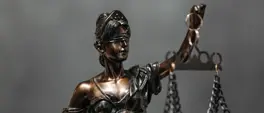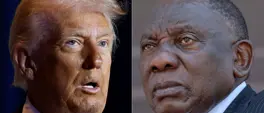MALAIKA MAHLATSI: Nelson Mandela and the struggle of memory against forgetting
Malaika Mahlatsi
20 July 2023 | 10:00The story of Mandela is told in part truth, part myth, and part falsification because, among other reasons, the ANC no longer has a single idea that unifies society, writes Malaika Mahlatsi.
OPINION
A week ago, one of the most brilliant writers of all time died.
Milan Kundera, the world-renowned Czechoslovakia-born author, died in France, a country that he fled to in the mid-1970s and which would later grant him citizenship after the Communist regime in Czechoslovakia revoked his, rendering him stateless.
Though the government of the Czech Republic would reinstate his citizenship in 2019, 40 years after it had been taken from him, the symbolic act would not and could not undo the horrors that Kundera had suffered as a man without a country and the persecution that lasted decades, culminating in false allegations of being a “traitor” in relation to the Miroslav Dvořáček controversy.
Kundera was accused of informing on Dvořáček, who had returned to Czechoslovakia after defecting to the West. Dvořáček would go on to serve over a decade at a labour camp. Many renowned scholars and authors stood by Kundera when these accusations were levelled against him, recognising that they were nothing more than an attempt at rewriting history.
They understood that Kundera, who had been expelled by the Communist Party on two separate occasions, was a revolutionary who, in the words of Enersto “Che” Guevara, was guided by great feelings of love. He could not have been in cahoots with a regime he had so passionately criticised – criticism for which he would pay a heavy price.
Like most readers, I regard Kundera’s The Unbearable Lightness of Being as his greatest work.
The novel, set in the period of the Prague Spring when Czechoslovakia was gripped by mass protests against the authoritarian Communist regime that had increasingly moved towards Stalinism, compels us to interrogate some existential questions about the nature of being.
It is a book that should be read by all. But The Unbearable Lightness of Being is not Kundera’s most riveting and intellectually challenging book. That honour goes to The Book of Laughter and Forgetting, a collection of short stories and reflections on the layered ways in which Czechoslovakians experienced and interpreted Communism.
In particular, it engages with the subject of forgetting – and how history is shaped by the politics of memory.
It is this offering by Kundera that I found myself thinking about on Mandela Day, as I watched President Cyril Ramaphosa unveiling two Nelson Mandela statues in Mthatha’s Bhunga Building and Qunu village, the birthplace of the late statesman.
I listened attentively to the president’s keynote address, in which he articulated the importance of monuments and statues, contending that these play a critical role in the political and cultural life of a country.
And certainly, for a country like South Africa that is emerging from the horrors of an amoral past, monuments and statues are deeply symbolic. But these monuments, as we learn from Kundera, can also be instruments of the repression of memory and the rewriting of history.
The legacy of Nelson Mandela, as an activist and as a statesman, is indelible in the history books of the world.
As the first president of a democratic South Africa, he played an instrumental role in ushering in a dispensation that sought to redress the injustices of a difficult past. His is a story that has been told and re-told many times.
It is a story that is clouded in part truth, part myth, and part falsification. The more the Mandela story is told, the further it moves from the facts of history.
Initially, I believed that the story was told this way by liberals who sought to isolate Mandela from the African National Congress (ANC) as a way of sustaining their demonisation of it. It’s not an accident of history that the Mandela story is modelled around the great man of history theory.
It falls apart at the seams when told as a story of the ANC, even as Mandela was both a product and a leader of the organisation, whose actions and deeds were a mandate from an ANC that consulted its membership and collective leadership. Later, it occurred to me that it was told this way by White racists seeking redemption in the invention of a Mandela who had no race or class politics.
It’s not an accident of history that the dominant Mandela story focuses almost exclusively on the idea of reconciliation and the myth of rainbowism. In this version, his militant ideas and reflections on race relations are muted. His commitment to speaking truth about the injustices and inequities suffered by people of the global majority, from Palestine to Kashmir, is disregarded.
It does not fit neatly into the image of a somewhat depoliticised hero that they want to construct. But as I listened to Ramaphosa’s speech in Mthatha, I realised that the story of Mandela is also told in part truth, part myth, and part falsification because the ANC no longer has a single idea that unifies society.
It is not an accident of history that the only time the ANC-led government can get South Africans to unite behind an idea is when the idea is centred around Mandela. Even the most incorrigible of racist individuals and corporations are afraid to not be seen to be doing their part on Mandela Day.
It is quite evident that in a world where its hegemony is shattered, the ANC has come to depend on the Mandela story in all its half-truths, distortions and terminological inexactitudes. It is the only way the party can cling onto a collective imagination that it simply can no longer capture.
There is danger in permitting the distortion and invention of history, even as a way of unifying a people. We must build monuments and statues because we must insist on remembering history. But in remembering history, we must insist on not forgetting that no one person won us freedom.
We must insist on remembering the many hands that razed apartheid to its very foundations and built this better but imperfect South Africa that we call home.
We must remember, as Kundera insists, that the struggle of man against power is fundamentally the struggle of memory against forgetting.
Kundera is gone. Long live Kundera!
Malaika Mahlatsi is a geographer and researcher at the Institute for Pan African Thought and Conversation. She is a PhD candidate at the University of Bayreuth, Germany.
Get the whole picture 💡
Take a look at the topic timeline for all related articles.















